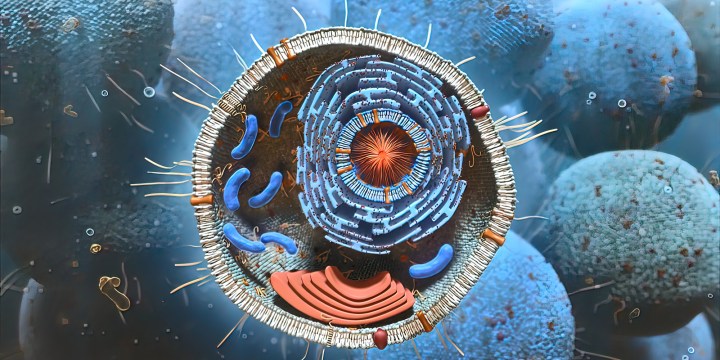GUILTY AS HELA OP-ED
Human cells have become tradeable legal objects – are yours safe from exploitation?

Microscopic cells are infrequently thought about, but not understanding the ownership and consent rights associated with cells can have profoundly negative consequences.
In early 1951, Henrietta Lacks, a 31-year-old African-American woman, was diagnosed with cancer. She had treatment at Johns Hopkins Hospital in the US. Sadly, however, despite her treatment, Lacks died from metastasised cancer in October 1951 and was buried in an unmarked grave.
Earlier in 1951, a tissue sample had been retrieved from Lacks at the hospital. It was sent to the research laboratory of cell biologist Dr George Gey, where the cancer cells from the sample were isolated. These were different from all previous cells studied in Gey’s laboratory. By applying a special technique, they could grow and divide indefinitely in a culture medium.
Using Lacks’s cancer cells, Gey had developed the world’s first immortal human “cell line”, meaning that the cells could grow and divide indefinitely. He called it the “HeLa” cell line after Henrietta Lacks.
Over more than 70 years, the HeLa cell line has been used in countless medical breakthroughs worldwide, ranging from developing the polio vaccine in the 1950s to studying cancer and the human genome and, more recently, developing Covid-19 vaccines. Almost 11,000 patents are involved in the HeLa cell line.
In South African law, the honest intentions of researchers are vital in determining the ownership of products resulting from research.
All of this with eye-watering financial implications. Furthermore, more than 110,000 scientific articles have been published about research done on the HeLa cell line.
The big problem, however, is that Henrietta Lacks’s consent to use her cells for research purposes was never obtained. Her privacy was violated and neither she nor her descendants benefited financially or in any other way from the commercial use of her cell line.
Read more in Daily Maverick: Gene editing raises profound moral questions on ethics, eugenics and human rights
Although such actions were accepted practice in the 1950s, society’s values have changed and the HeLa cell line is now controversial. Several ethical and legal issues are important.
One such issue is ownership of the HeLa cell line. This issue will surely be canvassed in the lawsuit filed in late 2021 by the estate of Henrietta Lacks against Thermo Fisher Scientific, a global biotechnology company. It is likely that profits made by the large biotech company from commercialising the HeLa cell line will be claimed.
The South African context
Turning now to contemporary South Africa, how can we be sure that a similar violation of privacy rights will not occur as a result of the actions of unscrupulous research institutions? In what circumstances do we own our tissue and resulting cell lines, and how are we protected in the case of wilful legal non-compliance?
In South Africa, the National Health Act prescribes that informed consent of individuals is required before the extraction of tissue samples. This means that the research institution must explain the intended research to the individual from whom a tissue sample is sourced. This explanation should include mention of whether the research institution intends to create a commercial cell line from the tissue.
If the research institution fails to comply with the law, the donation agreement would be unlawful and void, and ownership of the sample would not transfer to the research institution involved. Consequently, a present-day Henrietta Lacks in South Africa would then be the owner of the cell line derived from her tissue sample.
Read more in Daily Maverick: A glimpse into the unknown – human genome gets a huge update
She would have two remedies to restore ownership and claim financial compensation: first, she could claim possession of the cell line from anyone in possession of it. Second, she could claim all profits from anyone who had sold the cell line by using something known as a general enrichment action. She would be the owner of a tradeable legal object – her cell line.
Thus, those who presume ownership and sell her cell line for profit would enrich themselves at her expense, and she would thus be able to claim such profits from them.
An exception to the above scenario would be if the research institution’s failure to comply with the law was not wilful, and if it believed itself, in good faith, to be the owner of the tissue.
If this could be proven in court, the research institution would be the owner of the cell line that it created from the tissue sample, and a present-day Henrietta Lacks would be able to claim back only her tissue sample, and not the cell line or profits from it. This is because our law values good faith – in this case the good faith of the researchers who created the new cell line.
The take-home message is that in South African law, the honest intentions of researchers are vital in determining the ownership of products resulting from research.
Thus, when individuals are asked to donate tissue samples for research, the purpose of the research – and whether there is a commercial aspect to it – must be carefully explained and then agreed to.
If such a process is followed, then affected South Africans will not suffer the misfortune of Lacks and her descendants, and the wrongs of the past will not be repeated here. DM
For a more detailed analysis of this topic, read here.
Professor Donrich Thaldar and Dr David Barraclough are from the School of Law, University of KwaZulu-Natal.


















Comments - Please login in order to comment.